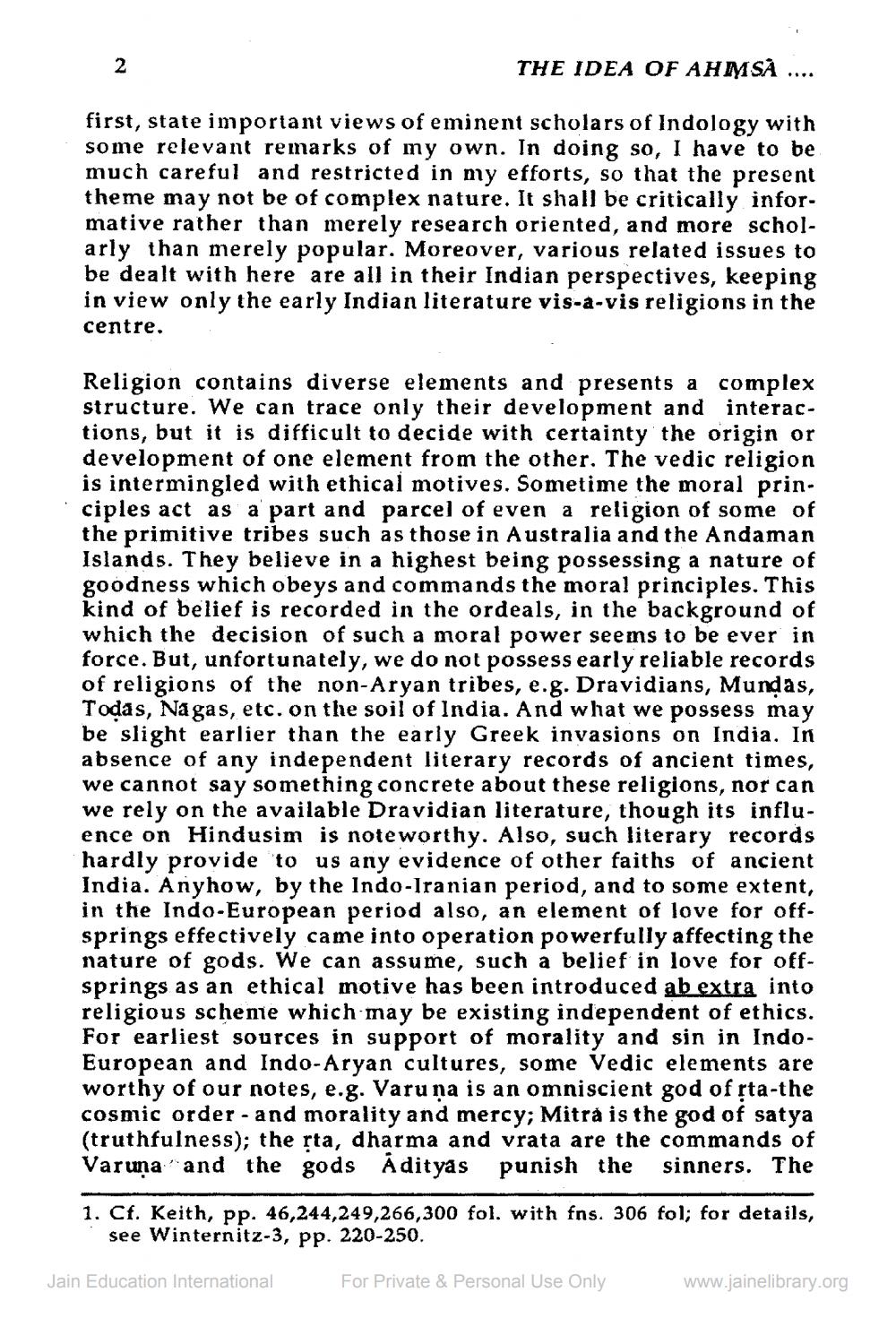________________
THE IDEA OF AHMSA ....
first, state important views of eminent scholars of Indology with some relevant remarks of my own. In doing so, I have to be much careful and restricted in my efforts, so that the present theme may not be of complex nature. It shall be critically informative rather than merely research oriented, and more scholarly than merely popular. Moreover, various related issues to be dealt with here are all in their Indian perspectives, keeping in view only the early Indian literature vis-a-vis religions in the centre.
Religion contains diverse elements and presents a complex structure. We can trace only their development and interactions, but it is difficult to decide with certainty the origin or development of one element from the other. The vedic religion is intermingled with ethical motives. Sometime the moral principles act as a part and parcel of even a religion of so the primitive tribes such as those in Australia and the Andaman Islands. They believe in a highest being possessing a nature of goodness which obeys and commands the moral principles. This kind of belief is recorded in the ordeals, in the background of which the decision of such a moral power seems to be ever in force. But, unfortunately, we do not possess early reliable records of religions of the non-Aryan tribes, e.g. Dravidians, Mundas, Todas, Na gas, etc. on the soil of India. And what we possess may be slight earlier than the early Greek invasions on India. In absence of any independent literary records of ancient times, we cannot say something concrete about these religions, nor can we rely on the available Dravidian literature, though its influence on Hindusim is noteworthy. Also, such literary records hardly provide to us any evidence of other faiths of ancient India. Anyhow, by the Indo-Iranian period, and to some extent, in the Indo-European period also, an element of love for offsprings effectively came into operation powerfully affecting the nature of gods. We can assume, such a belief in love for offsprings as an ethical motive has been introduced ab extra into religious scheme which may be existing independent of ethics. For earliest sources in support of morality and sin in IndoEuropean and Indo-Aryan cultures, some Vedic elements are worthy of our notes, e.g. Varu na is an omniscient god of rta-the cosmic order and morality and mercy; Mitra is the god of satya truthfulness); the rta, dharma and vrata are the commands of Varuņa" and the gods Adityas punish the sinners. The
1. Cf. Keith, pp. 46,244,249,266,300 fol. with fns. 306 fol; for details,
see Winternitz-3, pp. 220-250.
Jain Education International
For Private & Personal Use Only
www.jainelibrary.org




